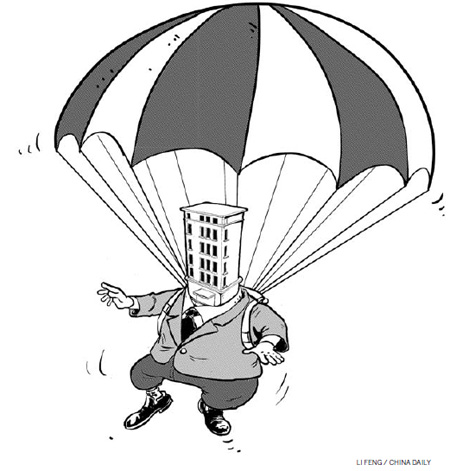China's realty won't go US way
By Steffen Dyck and Tobias Just (China Daily) Updated: 2011-05-17 07:57

Housing prices in China have risen by 53 percent over the last four years, raising concerns that a bubble has been created in the real estate sector. There is little doubt that there has been a growing speculative component in property markets in many Chinese cities and/or segments, which in turn has pushed up housing prices beyond their fundamentally justified levels.
This leads us to three important questions: First, will the bubble burst? Second, if so, when? Third, how serious may be the implications for the economy?
We dare not answer the second question. But we will venture to give some thoughts on the first and third.
|
||||
Nevertheless, the price rises in some cities have increasingly delinked from fundamentals. Government tightening measures are targeting these developments, but so far they have had limited impact.
A sustained sharp price correction is not very likely. First, pent-up demand will stay in place. If prices were to drop rapidly by a significant margin (say more than 10 percent on a national scale), potential first-time buyers who so far have stayed away might step in, helping "stabilize" prices again.
Second, foreign investors' interest in China's property market is showing signs of strengthening again, which is another stabilizing factor.
Third, Chinese financial markets are still underdeveloped and individuals especially lack attractive investment alternatives. Thus, investing in residential property remains one of the few investment opportunities for them.
Fourth, household savings rates are still high and inflation rates are expected to slow only moderately from the second half of this year. This bolsters residential real estate assets, too.
Fifth, the outlook for income growth remains positive, and this will help improve affordability.
Sixth, the government's policies to curb rising prices are relatively aggressive, and the focus on affordable housing and development of rental markets, in particular, will cushion the impact on property developers and the construction sector in the medium term.















